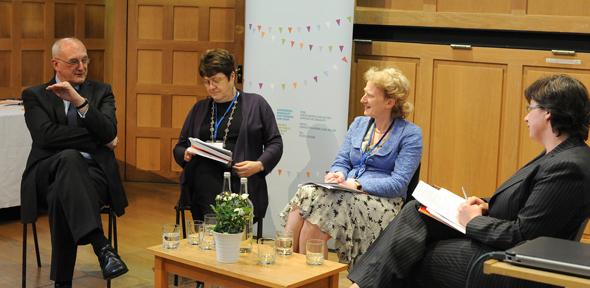
Transparency with data and statistics is key to progressing gender equality at the University, the Vice-Chancellor says.
Straightforward statistics tell us that we are not doing enough to address equality of opportunity for women
Professor Sir Leszek Borysiewicz
The University of Cambridge should be open with data that relate to the recruitment, progression and retention of female academics to stimulate genuine progress on gender equality, the Vice-Chancellor said last week.
“Straightforward statistics tell us that we are not doing enough to address equality of opportunity for women and, while good work is being done in this area, I am prepared to be transparent with those statistics until meaningful action is adopted across the University,” he said.
Professor Sir Leszek Borysiewicz was speaking at a meeting of the Senior Gender Equality Network, which saw men and women gather to discuss recommendations to improve gender equality, increase senior engagement and develop local equality champions.
The Vice-Chancellor was joined in discussion by Professor Jane Clarke, from the Department of Chemistry, Professor Dame Athene Donald, from the Cavendish Laboratory, also the University’s gender equality champion, and Professor Jeremy Sanders, the University’s Pro-Vice-Chancellor for Institutional Affairs.
They each gave personal explanations of why gender equality mattered, what they thought should be done to achieve it, and to discuss recommendations for actions that had been generated from a series of workshops for senior academic and administrative staff at the University.
There was widespread agreement that being open with data around recruitment and promotion of women was important – as an accurate picture of the current situation, to stimulate action and as a means to monitor progress.
Professor Donald stressed that the challenge of improving gender equality at the University needed a distributed response, with Heads of Schools, Departments and Faculties playing a proactive role in recruiting from a larger and diverse pool of excellent candidates. The Vice-Chancellor added that the University must do everything to ensure excellence in its research activities, and this included drawing from as wide a talent pool as possible.
The panel agreed that much good work had been done since the launch of SGEN just over a year ago, with an increase in the number of departmental Athena SWAN applications, mentoring opportunities for women thinking of applying for senior academic promotion, and financial commitment for a Returning Carers Scheme.
“This is a great opportunity,” Professor Donald said. “We need people to ask themselves what they can do to make a difference so that we can meet some of these challenging targets.”
